August 5, 2021
Search Results for: working hours
July 30, 2021
Employers believe the way we work has changed forever
by Jayne Smith • Flexible working, News, Wellbeing, Working lives
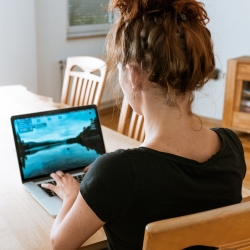 After more than a year of remote working, the majority of UK workers are well-versed in office-free employment. We’ve had plenty of time to think about how the experience has affected our working habits. Gazprom Marketing & Trading surveyed 1,000 employees across a range of sectors, asking participants about their working hours, mental health, and the challenges they’ve encountered along the way. (more…)
After more than a year of remote working, the majority of UK workers are well-versed in office-free employment. We’ve had plenty of time to think about how the experience has affected our working habits. Gazprom Marketing & Trading surveyed 1,000 employees across a range of sectors, asking participants about their working hours, mental health, and the challenges they’ve encountered along the way. (more…)
July 19, 2021
Employee productivity damaged by notification overload and urgent demands
by Jayne Smith • Flexible working, News, Working lives
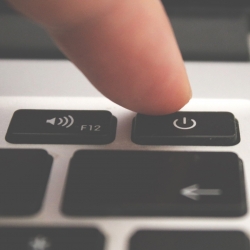 More than two-thirds (68 percent) of employees in the UK have admitted they get so many distractions and message notifications during work that it’s affecting their productivity. This is according to new research from Advanced which also claims 22 percent have so many distractions that their working day is never spent fully on actual work. (more…)
More than two-thirds (68 percent) of employees in the UK have admitted they get so many distractions and message notifications during work that it’s affecting their productivity. This is according to new research from Advanced which also claims 22 percent have so many distractions that their working day is never spent fully on actual work. (more…)
June 22, 2021
Winning the war for talent in the post-pandemic world
by Jayne Smith • Flexible working, News, Working lives
 The Future Forum, a consortium launched by Slack Technologies, Inc., has released a new study that unpacks how 15 months of pandemic work has shifted employee expectations. (more…)
The Future Forum, a consortium launched by Slack Technologies, Inc., has released a new study that unpacks how 15 months of pandemic work has shifted employee expectations. (more…)
June 2, 2021
Face-time pressure may force us back to the office
by Jayne Smith • Flexible working, News, Working culture
 Employees feel they need to go back into the office in order to be promoted according to new research conducted within the “Reinventing Work” chair at ESCP Business School. (more…)
Employees feel they need to go back into the office in order to be promoted according to new research conducted within the “Reinventing Work” chair at ESCP Business School. (more…)
May 20, 2021
The pandemic will transform the way we commute
by Tim Burgess • Comment, Flexible working, Wellbeing
 Organisations and businesses have a lot to contend with as they begin to reopen their offices. From social distancing, working from home policies, office layouts, hand gel stations and more. But there also remains one key issue when it comes to welcoming employees back to the office. And that’s how they will get to work in the first place. That’s because the daily commute is going to look a lot different than it did pre-COVID. Firstly, while many employers and workers see the benefit of meeting in person, the hybrid world we now live in will see workers commuting to the office far less frequently. And, if they do travel to the office, there is an element of hesitancy about how they will get there; a recent study revealed 60 percent that ‘post pandemic’ commuting say hybrid working has reduced stress from not having to commute daily. (more…)
Organisations and businesses have a lot to contend with as they begin to reopen their offices. From social distancing, working from home policies, office layouts, hand gel stations and more. But there also remains one key issue when it comes to welcoming employees back to the office. And that’s how they will get to work in the first place. That’s because the daily commute is going to look a lot different than it did pre-COVID. Firstly, while many employers and workers see the benefit of meeting in person, the hybrid world we now live in will see workers commuting to the office far less frequently. And, if they do travel to the office, there is an element of hesitancy about how they will get there; a recent study revealed 60 percent that ‘post pandemic’ commuting say hybrid working has reduced stress from not having to commute daily. (more…)
May 14, 2021
Ditching ageism and ableism at work could pay dividends
by Jayne Smith • News, Working culture
 A new report launched by the International Longevity Centre UK (ILC) highlights how pervasive ageism and ableism in the workplace are still locking far too many people out of work as they age, costing not only individuals but employers and the economy. (more…)
A new report launched by the International Longevity Centre UK (ILC) highlights how pervasive ageism and ableism in the workplace are still locking far too many people out of work as they age, costing not only individuals but employers and the economy. (more…)
February 26, 2021
UK workers put in £24 billion worth of unpaid overtime during the pandemic
by Jayne Smith • News, Working lives
 UK employers claimed £24 billion of free labour last year because of workers doing unpaid overtime, according to new analysis published by the TUC. More than three million people did unpaid overtime in 2020, putting in an average of 7.7 unpaid hours a week. On average, that’s equivalent to £7,300 a year of wages going unpaid for work done. (more…)
UK employers claimed £24 billion of free labour last year because of workers doing unpaid overtime, according to new analysis published by the TUC. More than three million people did unpaid overtime in 2020, putting in an average of 7.7 unpaid hours a week. On average, that’s equivalent to £7,300 a year of wages going unpaid for work done. (more…)
February 12, 2021
Mental health related workplace absenteeism costs soared to £14bn in 2020
by Jayne Smith • Business, News, Wellbeing
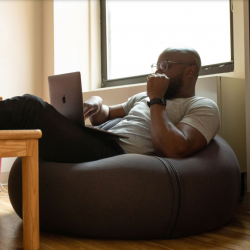 The impact of the nation’s deteriorating mental health from Covid-19 lockdowns and other restrictions cost UK businesses £14bn last year, according to a study by Westfield Health. The cost of absenteeism from work due to mental health reasons increased last year by £1.3bn from 2019’s totals as work from home, travel restrictions, furlough and pay cuts changed the workplace for millions of people across the UK. (more…)
The impact of the nation’s deteriorating mental health from Covid-19 lockdowns and other restrictions cost UK businesses £14bn last year, according to a study by Westfield Health. The cost of absenteeism from work due to mental health reasons increased last year by £1.3bn from 2019’s totals as work from home, travel restrictions, furlough and pay cuts changed the workplace for millions of people across the UK. (more…)
January 28, 2021
Right to disconnect should be enshrined in law, says EU Parliament
by Neil Franklin • Flexible working, News
![]() The EU Parliament has announced that it would like to protect what it calls employees’ fundamental rights to disconnect from work which includes restricting the way employers might contact staff outside their contracted working hours. Although the right to disconnect is not defined by EU law, the Parliament has called upon the Commission to come up with a law allowing employees to disconnect from work during non-work hours without consequences and setting minimum standards for remote work. (more…)
The EU Parliament has announced that it would like to protect what it calls employees’ fundamental rights to disconnect from work which includes restricting the way employers might contact staff outside their contracted working hours. Although the right to disconnect is not defined by EU law, the Parliament has called upon the Commission to come up with a law allowing employees to disconnect from work during non-work hours without consequences and setting minimum standards for remote work. (more…)






 ‘Pleasanteeism’ – the pressure to put on a brave face – is undermining efforts to promote an open dialogue about mental health at work, according to new research by
‘Pleasanteeism’ – the pressure to put on a brave face – is undermining efforts to promote an open dialogue about mental health at work, according to new research by 


 New research from beauty company
New research from beauty company 
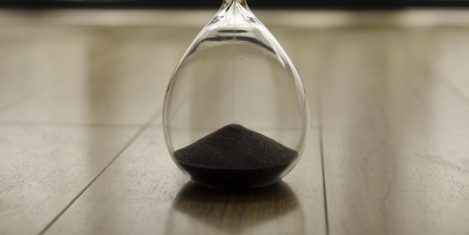



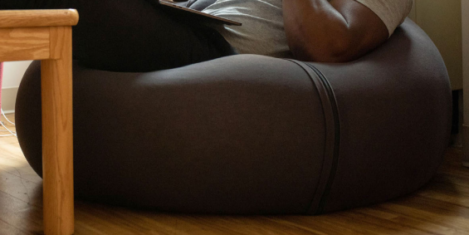









June 16, 2021
We need to rethink the role of technology in corporate wellbeing
by Brendan Street • Comment, Technology, Wellbeing